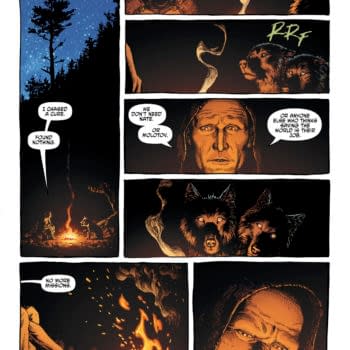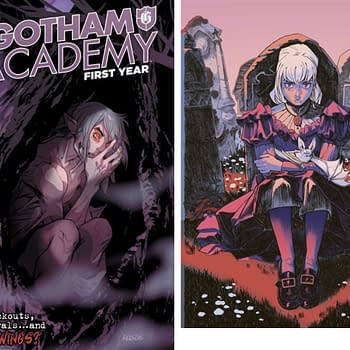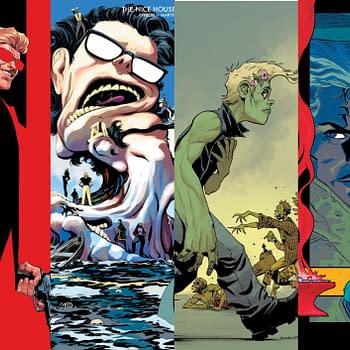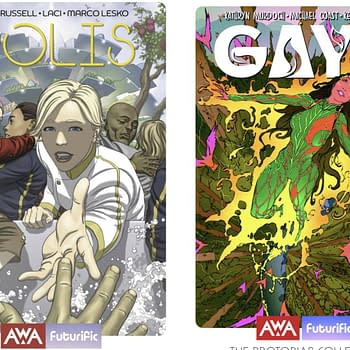Posted in: Comics | Tagged: Comics, dynamite, entertainment, mark rahner, Shadow and Substance, twilight zone
Mark Rahner Talks Career 2.0 And The New Twilight Zone: Shadow And Substance
Gail Simone, writer on Red Sonja #14, talks with writer Mark Rahner about The Twilight Zone: Shadow and Substance #1, both on sale now.
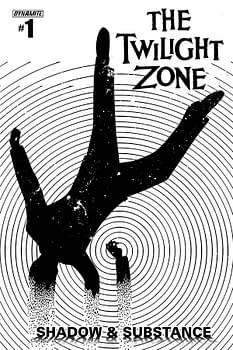
MARK RAHNER: In that case, I say welcome to the Mark party!
I've been doing comics since around 2009. I came from Career 1.0 as a newspaper reporter and critic – largely at The Seattle Times – and began Career 2.0 with my creator-owned zombie-western, Rotten, from Moonstone Books. So doing the math, I've made my living as a writer for 20 years and the last six of those have been much more fun. You can find out – and read – a bunch more by and about me at www.markrahner.com.
As far as doing Twilight Zone, you could say I "proved in" with a lot of previous Dynamite work, as well as being an obsessive, lifelong TZ and Rod Serling devotee – and letting our authority-figure editors know it.
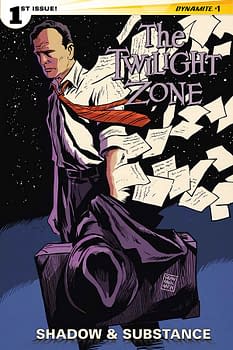
MR: That means a lot to me, especially coming from a fellow Twilight Zone cultist. I've said from the time I started writing my previous TZ volumes – the 2014 Annual and Lost Tales– that that was my goal. So I hope you and the other readers will check those out, too.
We're the same on the hardcore front. The original show is gospel to me. I'm very familiar with Serling's life. I read all the prose collections when I was a kid, have all those magazines, Night Gallery, Serling's previous live TV work, interviews, biographies … you get the idea. It was in my veins at an early age, and I've been getting continuous infusions.
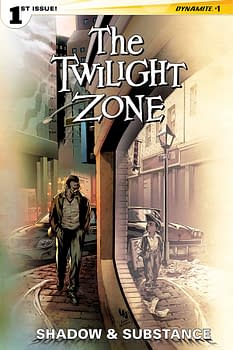
MR: There's no pressure greater than the prospect of hating myself if I screw up something that's so important to me. But my career 1.0 was good schooling in performing under the greatest of pressures, and on deadlines.
My main concern with "Stumbling Distance" was that it's more personal than I've gotten in comics. Writing those long-established characters like Dejah Thoris and The Avenger– whom I also love – doesn't lend itself to that so easily. But Serling went deep, and writing is risk.
As far as people's expectations, I want to exceed them. At least that's what I strive for. I'm a compulsive researcher with a knack for getting the tones of things, but I also have no interest in inbred fan fiction or recycling catchphrases like "Submitted for your approval." My stories are meant to be completely faithful, but still new and raw and experimental and angry.
GS: Tell me a little bit about your story, why did you choose to tell a story of a writer confronting his demons? This was a favorite theme of many TZ writers, obviously, but what made you go to that place?
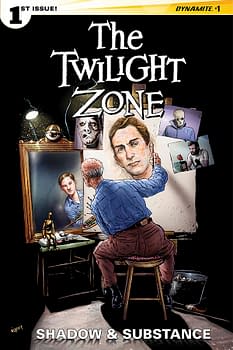
I rewatched "Walking Distance" on Blu-ray recently, and it nearly brought me to tears. Beautiful. One of the landmark Twilight Zone stories, and it features one of Serling's most prominent obsessions: nostalgia for his childhood and hometown. So here's my own inverted version of that, with a vaguely familiar feel, but it goes down a whole different path. I don't want to retell or update the old stories. I've got plenty of my own.
GS: And finally, can you break down for us what's coming up? I have to say, I'm down. I was very pleasantly drawn into this story and I will be following every issue. So what can you tell us about your future issues?
MR: Glad to hear it! The next one is more science-fiction, about a prisoner in an overly comfortable containment facility run by giant aliens. Then some weird phobia-suspense from my recurring nightmare about waking up on a mattress on the pinnacle of a skyscraper swaying in the wind.
These are meant to feel like they could be episodes, yet still contemporary. I want you to feel like you're in good hands. But hands that'll give you a brisk shake.
For more on Twilight Zone: Shadow And Substance #1, click here.










